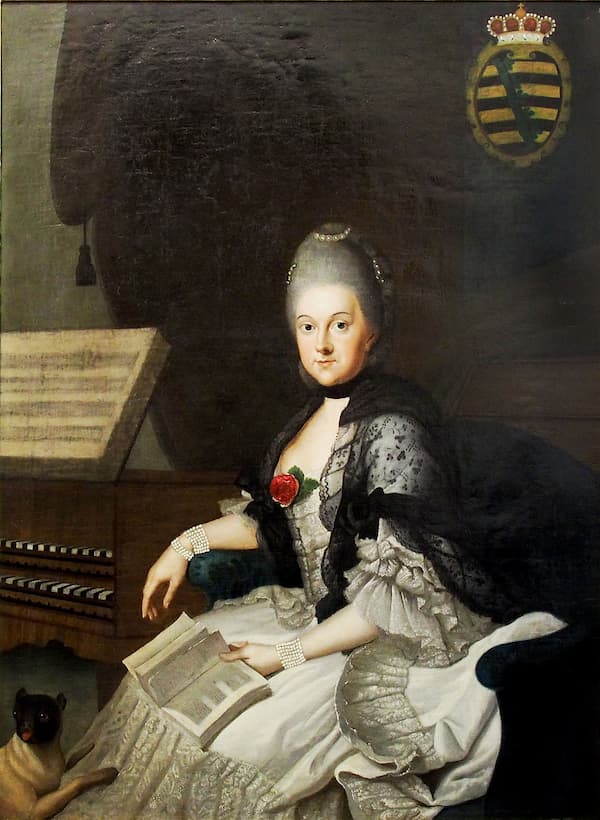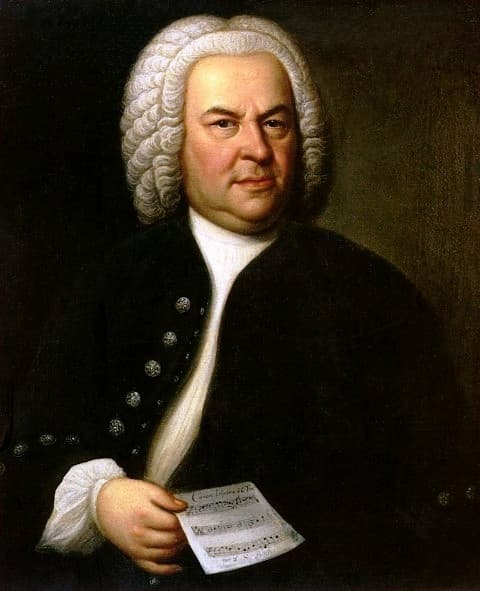In 1734, Johann Sebastian Bach was at the top of his game. His compositional powers were simply out of this world, and he composed six musically and textually interrelated cantatas for the twelve days of Christmas. He called the collection Weihnachts Oratorium (Christmas Oratorio), and it is one of the most wondrously dramatic and celebratory works on the planet.
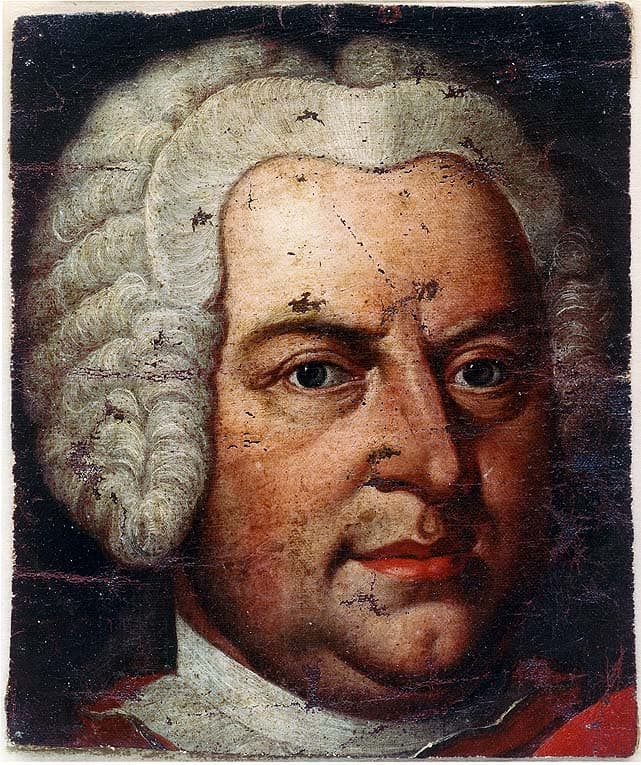
J.S. Bach
Bach collaborated on the libretto with his old friend Christian Friedrich Picander, and since he needed to put together six cantatas in a very short period of time, he borrowed some music from his earlier compositions. This is unbelievable as we might actually think of the Christmas Oratorio as a list of top 10 musical hits compiled by the master himself. To celebrate the 2023/24 Christmas season, here are 5 of the most magnificent and gorgeous arias from Bach’s Christmas Oratorio.
Johann Sebastian Bach: Christmas Oratorio, “Oh my Saviour, does your name”
Let’s get it all started with one of my personal favourites, the echo soprano aria “O My Saviour, Does Your Name Instill,” from Part IV. The entire cantata dwells on the comfort offered by the name of the new-born saviour, and as you can hear, there is another soprano hiding somewhere in the church echoing the words “Yes!” and “No!”
O my Savior, does your name
instill even the very tiniest seed
of that powerful terror?
No, You Yourself say no. (No!)
Shall I shun death now?
No, Your sweet word is there!
Or shall I rejoice?
Yes, o Savior, You Yourself say yes. (Yes!)
For his music, Bach borrowed from his secular cantata Hercules at the Crossroads, written for a birthday celebration. Here, Bach adds a complement of horns to the regular strings, and in the original cantata, Hercules is asking the mountain nymph Echo for advice to pick between vice and virtue. In the Christmas Oratorio, music becomes an “Echo” turned into a prayer. The speaker moves from uncertainty to affirmation, with the oboe getting all involved in the action.
Johann Sebastian Bach: Christmas Oratorio, “Prepare yourself, Zion”
A number of arias from the Christmas Oratorio have been presented on various recital programmes, none more frequently so than “Prepare yourself, Zion.” This gorgeous alto aria appears in the first part, “Celebrate, rejoice, rise up and praise these days,” of the oratorio. It follows the narration of the evangelist telling us about the journey to Bethlehem. In the next recitative, the Old Testament prophet reminds the Faithful of the ancient human yearning for the Messiah, and the famous aria asks for the preparedness of the people.
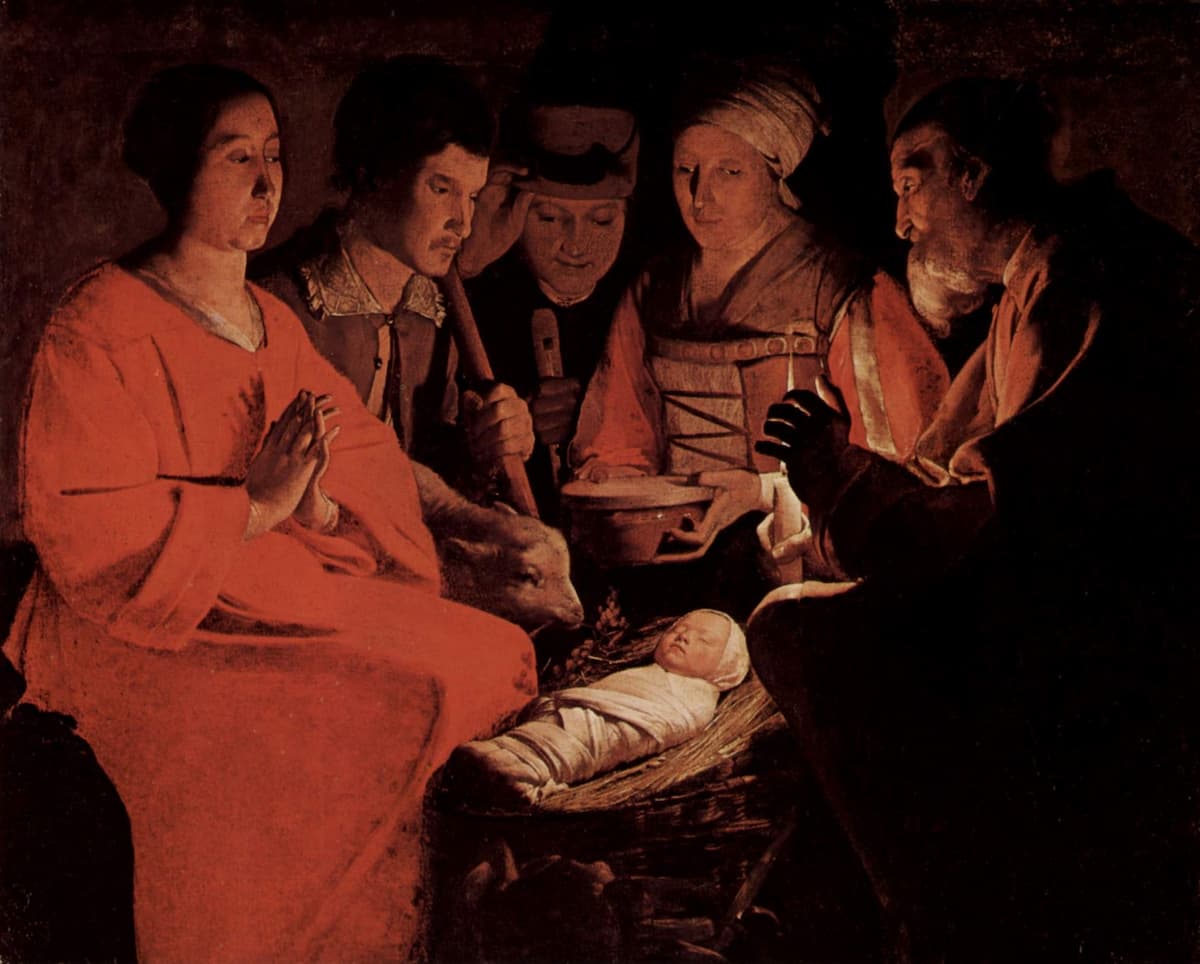
Georges de La Tour: The Adoration of the Shepherds
Prepare yourself, Zion, with tender efforts,
to behold your lovely one, your beloved, near you soon!
Your cheeks must now glow much more radiantly,
hurry to love the Bridegroom with passion!
Several choruses and arias heard in the Christmas Oratorio were recycled from two secular cantatas, or as Bach called them “dramas for music,” written shortly before to celebrate the birthdays of two members of the Saxon royal family. And just like our first featured magnificent aria, “Prepare yourself, Zion” originates in Hercules at the Crossroads.
Some critics are seriously distressed that Bach’s secular melodies found their way into religious works. How can one aria be used to celebrate a German Prince and at the same time accompany a meditation on the life of Christ? For Bach, such self-borrowing was never arbitrary, but he meticulously adjusted the music to a newly written text in order to repurpose his composition. And you really can’t argue with the result.
Johann Sebastian Bach: Christmas Oratorio, “Now, you arrogant enemies”
Our next magnificent aria “Now, you arrogant enemies, you many tremble” appears in the final cantata “Lord, when our insolent enemies snort with rage,” to be performed on the Feast of the Epiphany on 6 January. Unfolding under the overall theme of “Wise Men from the East,” Bach now confronts all arrogant enemies. And we learn in the final chorale that those enemies aren’t merely flesh and blood, but the eschatological death, the Devil, sin, and Hell.

St. Thomas Church, Leipzig
Now, you arrogant enemies, you may tremble;
what kind of fear can you arouse in me?
My treasure, my sanctuary is here with me.
You may seem still so horrible,
threatening to defeat me once and for all,
yet see! My Savior lives here.
After the Evangelist tells us that the Magi were warned in a dream not to return to Herod’s court, a long tenor aria follows. In this movement, the snorting, arrogant enemies are now addressed directly. The music for this magnificent aria comes from a now lost cantata probably composed in the autumn of 1734 for an unknown occasion. In this metaphor of redemption, humanity is caught between the powers of light and darkness, and God through Christ defeats the enemies of humanity.
The text of the aria reflects, according to a conductor, the last part of the Magnificat “he has performed mighty deeds with his arm; he has scattered those who are proud in their inmost thoughts,” which links this final cantata to the conception, circling back to the real beginning of the nativity story.” Isn’t it unbelievable how Bach’s creative genius is presenting music from the point of view of an awe-struck member of the congregation? This tenor aria, with wind trio accompaniment, presents swaying and pulsating music that is utterly spell-binding.
Johann Sebastian Bach: Christmas Oratorio, “Illumine my dark thoughts as well”
The bass aria “Illumine my dark thoughts as well” appears in Part V of the Christmas Oratorio, with its focus on the wise men from the Orient, the star in the East, and the anxiety of King Herod. It was to be sung at the first Sunday after New Year, but before Epiphany.” The aria is prefaced by a chorale verse written by Georg Weissel,” Now, beloved soul, now is the time—your radiance destroys all darkness, the troubled night is transfigured with light…”
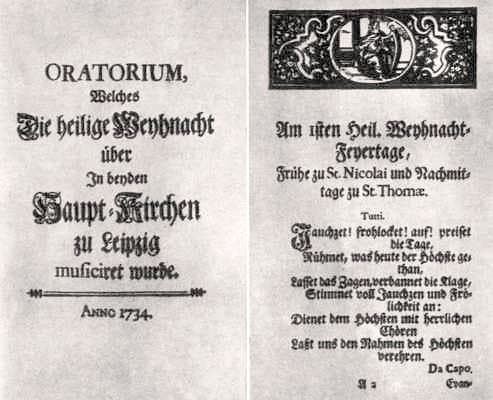
Libretto of the Christmas Oratorio
Illumine my dark thoughts as well,
illumine my heart
through the rays of your clear brilliance!
Your word shall be the brightest candle for me
in all my doings;
this will never let my soul initiate evil.
All of Part V is composed in a light structure because it portrays Jesus as the “light” against the darkness, and an orchestration that features two oboes d’amore, strings, and continuo. The bass asks for the glory of Jesus to enlighten him with its fire. What is perhaps interesting is the fact that this movement is an adaptation of a soprano aria from the secular cantata BWV 215.
Bach often assigned the voice parts to the dramatic situation, and soprano arias frequently represented a sense of femininity, passion, modesty, and submission. In the Christmas Oratorio, the bass voice is frequently associated with Christ, so within this context and the meaning of the text, the adaptation seems rather logical.
Johann Sebastian Bach: Christmas Oratorio, “Sleep, my beloved”
The annunciation to the Shepherds, musically set in Part II presents one of my all-time favourite arias. The story of Christmas continues by switching scenes to a group of shepherds in the field. This section begins with a beautiful pastorale for orchestra, specifically written for this work. And here we find Mary, singing a tender lullaby to her child. Did you hear that the flute accompanies the voice an octave above the voice throughout? It might well be that Bach wanted to symbolise angelic support for the singing Mary.
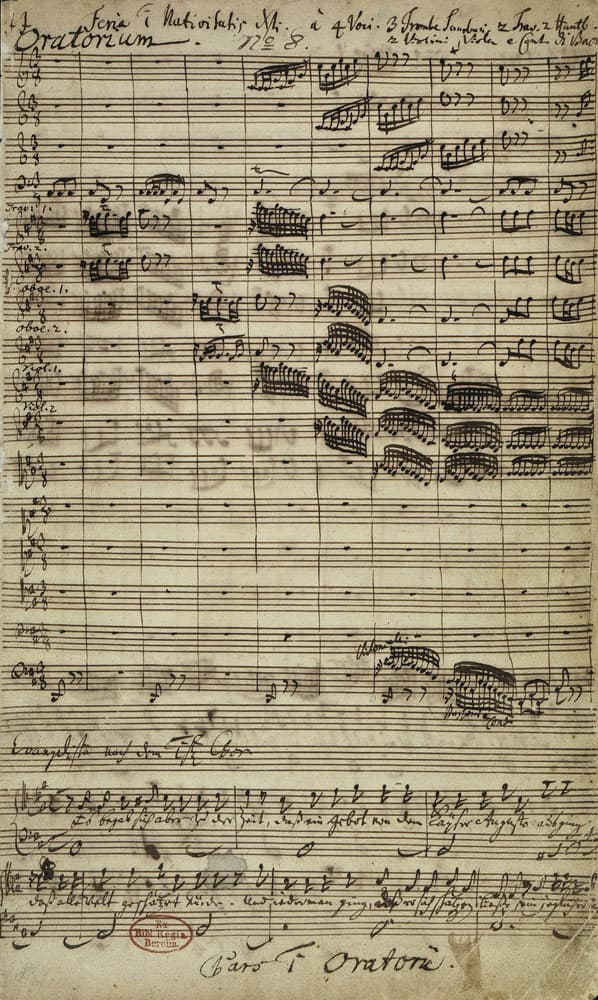
Autograph score of J.S. Bach’s Christmas Oratorio, BWV 248
Sleep, my beloved, enjoy Your rest,
and awaken after it for all the fortunate!
Let your heart delight,
experience the joy
that rejoices our hearts!
Johann Sebastian Bach: Christmas Oratorio, “Lord, your compassion, your mercy”
The Christmas Oratorio is a work of joyful optimism, a hopefulness that is very much needed in these turbulent times. As a bonus track, here comes a delightful duet between soprano and bass praising the sympathy and comfort of the Lord. As the voice characterisations suggest, it is very much a love duet between the soul and Jesus. Now that we have sampled 5 Magnificent Arias from the Christmas Oratorio, I think we are ready to look at 5 Magnificent Choruses as well, don’t you think?
For more of the best in classical music, sign up for our E-Newsletter


